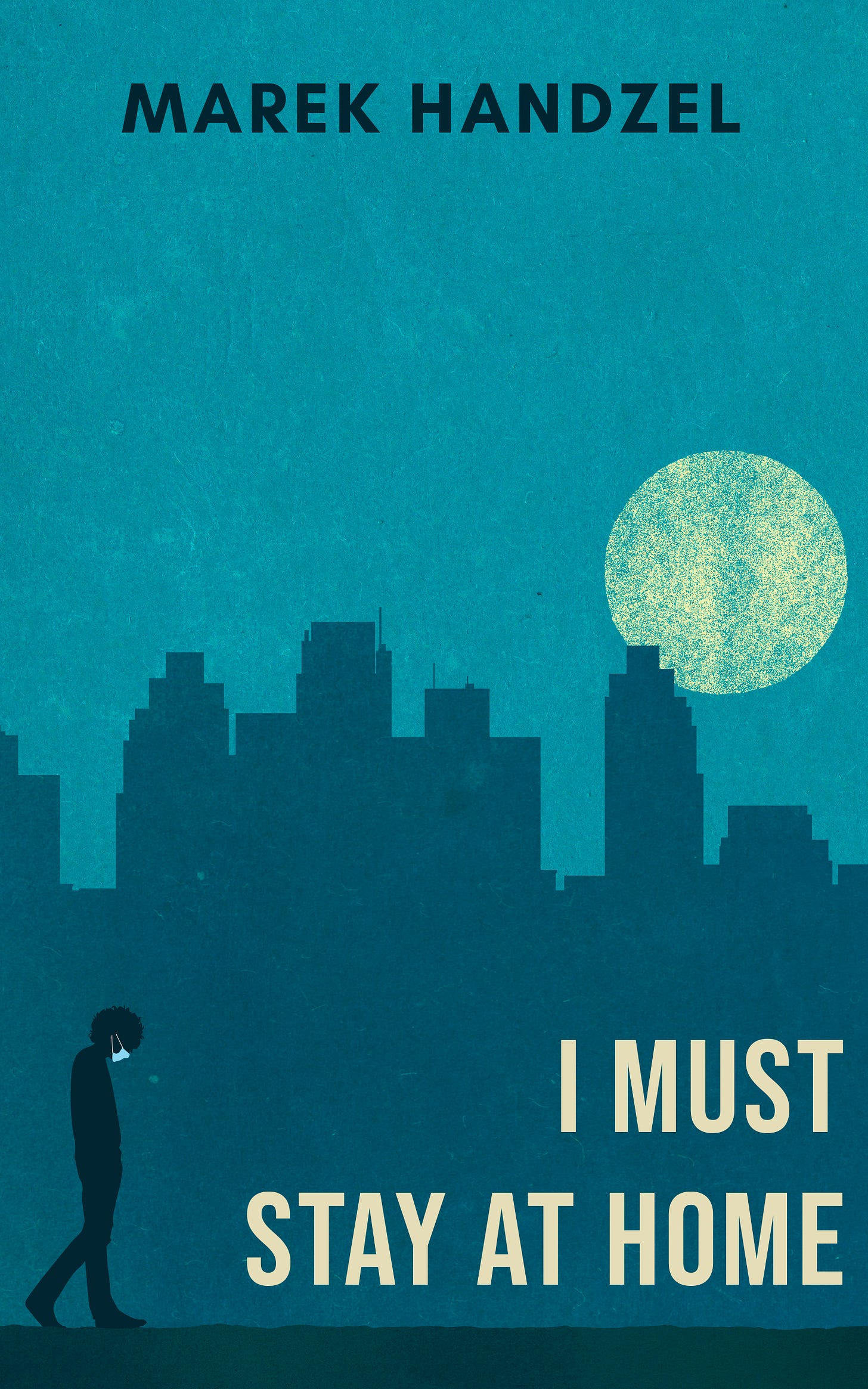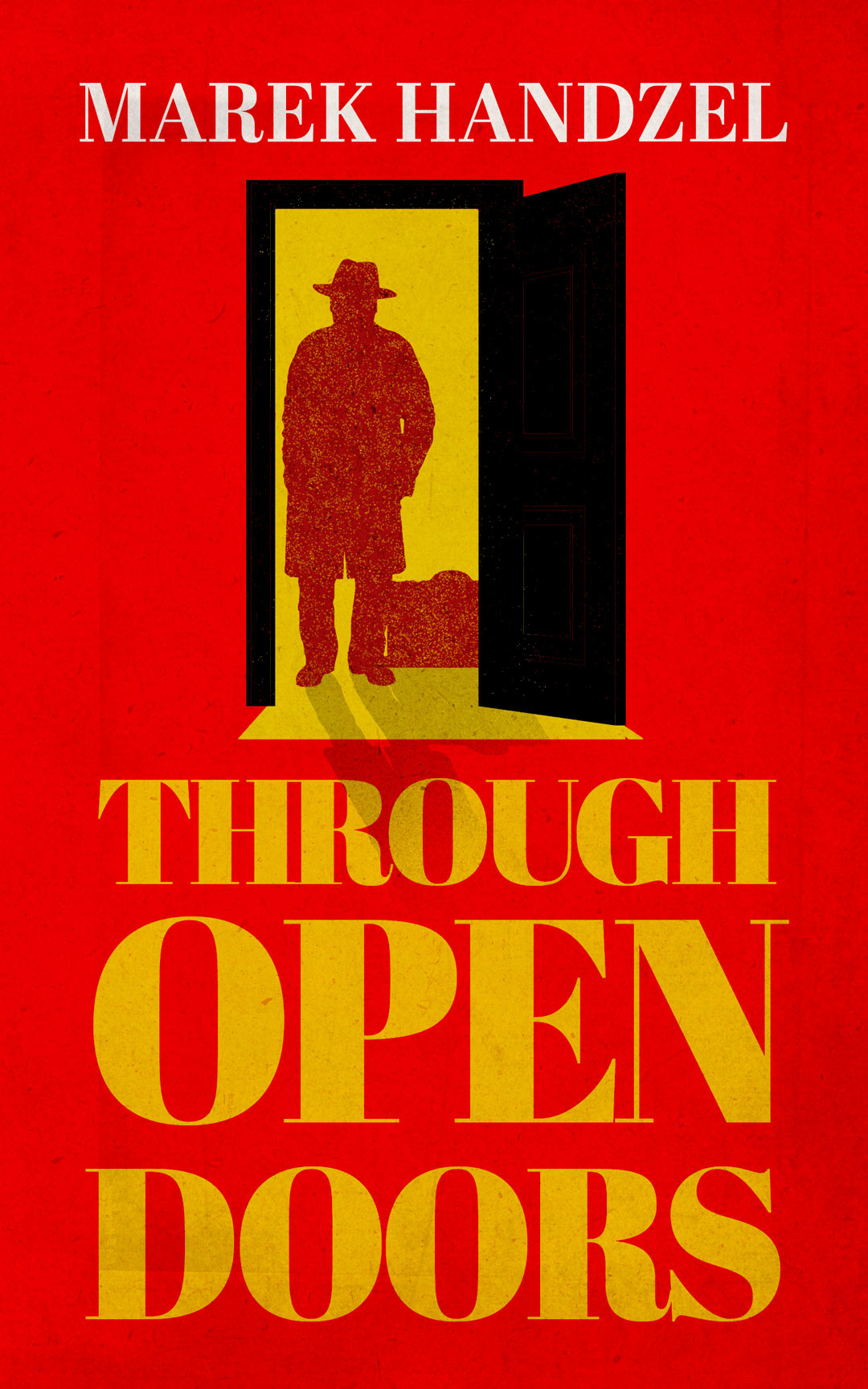Do you have a favourite book cover? It’s not a question people get asked much.
The question is usually “what’s your favourite book?” rather than cover. If you have a favourite book/novel then perhaps that automatically becomes your favourite book cover too.
I have both of these books on my bookshelf, and I love the covers.
I am also drawn to simple covers, which you can probably tell from my own works, such as I Must Stay at Home.
And my new novella, Through Open Doors, which will be out very soon…
Now, who hasn’t been told on at least one occasion, either by their parents or a teacher to “never judge a book by its cover”?
Sounds like sensible advice, right? But is it?
First impressions count. That’s why so many people spend a long time cultivating their image. They want you to jump to a conclusion about them before they’ve even uttered a word.
And we need to rely on first impressions a lot of the time.
If someone looks like a threat to you, then you should probably err on the side of caution.
If a child is crying, then they are likely upset about something and need an arm around their shoulder.
If someone is begging you for something they are likely in desperate need.
Correct?
Well, yes… and no.
That person may appear to be a threat, but they may also just be someone who is, for example, wearing a hoodie and hunched down as they are tired, cold, fed up, self-conscious, not wanting to make any eye contact, etc.
That child may be crying, but they may have just been misbehaving and been on the receiving end of a stern ticking off from one of their parents.
That beggar may look poor, but they get £100 a day in small change and then spend it on drink and drugs.
So you should always delve a bit deeper. Right?
Well, yes… and no.
The examples of the child and the beggar represent a cynical way of looking at things. And cynicism is a mostly healthy belief to harbour. But it’s also one that has been bred from bad experience, from a weary knowledge that the world is a pretty messed up place, with some very bad people in it. Particularly people who have want to give you the impression that they are good, but are really rotten to the core. They can sometimes be easy to spot (make a big deal of their philanthropy, virtue-signal like a broken railway light system, always have something to say about the “bad” guys), but the crafty ones hide their nefariousness like the devil himself.
But where does this leave trust? Nowhere, that’s where. With our child-like trust gone, we find it hard to help, to have empathy, to give people the benefit of the doubt, to exercise charity (the most excellent of all the virtues, according to St. Paul and St. Thomas Aquinas).
In summary, being distrustful of what your eyes are showing you is sensible, but it’s also at the same time, paradoxically, unfortunate and possibly damaging.
So what am I saying? I have no idea (look, this is called Handzel’s Hogwash for a reason, you know).
Final thought. Let’s make our first impressions count. By making them a true reflection of ourselves.
Progress report:
I will publish Through Open Doors next week.
I have shelved the novella idea of a guitar teacher/performer being kidnapped by a madman for now and started on a novella called The Gaff. It is at 2,089 words.
The Man Who Wore Hats (working title) is at 46,038 words.
Take it easy. And thanks for reading.




![Submission by [Michel Houellebecq] Submission by [Michel Houellebecq]](https://substackcdn.com/image/fetch/$s_!M7ee!,w_1456,c_limit,f_auto,q_auto:good,fl_progressive:steep/https%3A%2F%2Fbucketeer-e05bbc84-baa3-437e-9518-adb32be77984.s3.amazonaws.com%2Fpublic%2Fimages%2F6e9a7662-2b8d-4cfb-9993-7d6a463a001f_327x500.jpeg)
![L.A. Noir: The Lloyd Hopkins Trilogy: Blood on the Moon, Because the Night, Suicide Hill by [James Ellroy] L.A. Noir: The Lloyd Hopkins Trilogy: Blood on the Moon, Because the Night, Suicide Hill by [James Ellroy]](https://substackcdn.com/image/fetch/$s_!xB05!,w_1456,c_limit,f_auto,q_auto:good,fl_progressive:steep/https%3A%2F%2Fbucketeer-e05bbc84-baa3-437e-9518-adb32be77984.s3.amazonaws.com%2Fpublic%2Fimages%2Fe5267c35-35fa-406c-b41c-3c46f8d73bad_327x500.jpeg)

